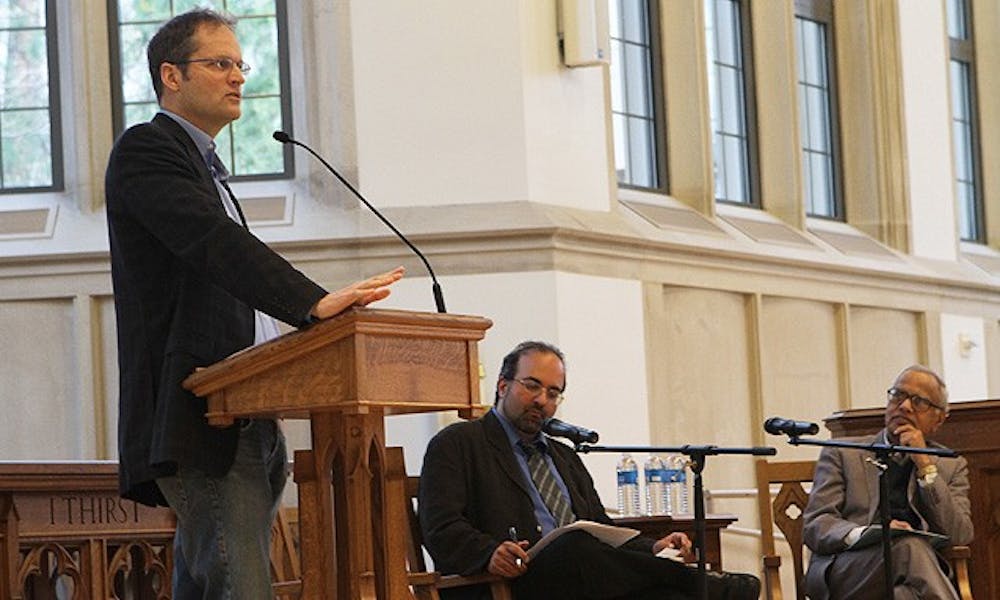Religions are not all rooted in the same fundamental truth, at least in the opinion of bestselling author Stephen Prothero.
Stephen Prothero, a professor of religion at Boston University, was critical of religious unification Wednesday evening at the Divinity School’s Goodson Chapel.
“[The universality of religions] is a lovely sentiment, but in my view it is wishful thinking,” Prothero said. “It is untrue, it is condescending, and it is even dangerous.”
Prothero’s book, “God Is Not One: The Eight Rival Religions That Run the World—and Why Their Differences Matter” discusses—and argues against—universality in religion.
While in graduate school, Prothero noticed the common view that all religions have the same basic ideas.
Prothero noted that scholars who attempt to reconcile faiths are “blinded to the unique beauty of each religion.”
Academic interreligious debate usually consists of more liberal members of different faiths only discussing religions’ similarities, Prothero said. He added that this does not accomplish much, calling instead for interfaith discussion that assumes—rather than denies—differences.
Omid Safi, professor of Islamic studies at the University of North Carolina at Chapel Hill, and Seshagiri Rao, former chief editor of the University of South Carolina’s Encyclopedia of Hinduism project, joined Prothero for the discussion.
Rao emphasized the importance of diversity and described the commonality in all religions.
“All spiritual literature concerns the search for truth,” he said. “There are sects that say that there is no God, but there is no sect that says there is no truth.”
Although Prothero cited the number of gods as one example of differences between religions, Rao disagreed with Prothero’s characterization of Hinduism as polytheistic, adding that the different deities were part of an omnipresent reality.
Safi said religious differences are important, but he also disagreed with Prothero’s main point that religions are intrinsically different.
“There is an absolute, and we give different names to that absolute,” Safi said. “Different religions are paths, distinct paths... that are the ways to that absolute. I want to separate the notion of the absolute.”
The unification of religions, however, can potentially blind people to the realities behind religious conflict, Prothero said.
Rao agreed with Prothero on that point, noting that society needs to understand the fundamental differences in beliefs between the groups engaged in these conflicts.
“What we need on this furiously religious planet... is a realistic view of religious conflict,” Rao said. “What we are seeing is not only an acceleration of interreligious contact but also interreligious conflict. We need a new way of thinking to ensure the continuity of our species.”
Get The Chronicle straight to your inbox
Sign up for our weekly newsletter. Cancel at any time.

